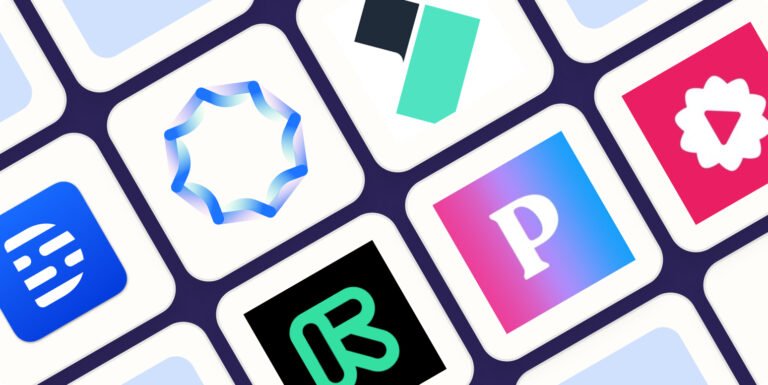The internet is a huge resource, that many end users can and often do find overwhelming. Below you will find a list of 9 internet tips and tricks you can use to get the most out of your internet surfing experience.
1. Use Internet Search Engines
When it comes to finding information online, the most powerful and useful tool you have at your disposal is the search engine, so use them. Instead of trying to guess the URL address of websites, simply type the information of interest into any search engine, such as Yahoo, Bing, or Google. Not only will you find a list of websites covering this topic, but you should also find a list of related information. To keep your web experience private, simply clear your cookie and browsing history. Clearing the cache on your browser can also be helpful when fixing issues.
However, you should definitely be wary of the things you search for on the internet. This is because many of the search engines capture this data, so they can learn more about you.
2. Try Different Browsers
The vast majority of computer owners will use the default browser that came with their system. On Microsoft Windows, it’s Microsoft Edge. However, there are a lot of great alternatives that you can use. All of which are free to download, and come with a host of features. Below are the ones I definitely recommend you give a look in:
- Mozilla Firefox
- Google Chrome
- Opera
3. Choose Strong Passwords
When looking at internet security, passwords happen to be one of the biggest weak spots, and for now, we shouldn’t expect that to change. The major problem with passwords nowadays is that people have a habit of choosing ones that are easy to remember (like “123456” or “password), this makes it easy for cybercriminals to guess.
For this reason you want to go with stronger passwords, as they are much harder for cybercriminals to crack. To manage these different complex passwords, you can use a password manager tool. Strong passwords are ones that are typically complex, unique, and no less than 7 characters long, combining, both upper and lower case letters, numbers, and special characters (if supported).
4. Be Mindful Of What You Post
There’s no delete key on the internet, anything you add to it, could potentially remain on it forever. Removing the original image, doesn’t account for all the copies that other people may have made. There is no way for you to take back something you originally said, or remove an unflattering selfie, you took, while at a party. Never put anything online that you wouldn’t feel comfortable showing to your family or a potential employer.
5. Keep Your Browser Up-To-Date
Internet browsers can have a wide range of plugins, all of which designed to add additional functions to it. For example, you can add Adobe Flash to your browser, which will allow it to play animated content. Making sure all these plugins are up-to-date is very important, for both your systems security but also its stability. There are tools you can use that will check this all for you. That way, you’ll always have the latest iteration of whatever is on your computer.
6. Update Your Antivirus
One thing many make the mistake of overlooking is a good antivirus program. When you have one installed on your system, it can make the difference between having a healthy system, and one that is riddled with errors, corruption and system slowdowns. So I say, go out and acquire an antivirus program, install it, and make sure it’s kept up to day. Your security software is only useful for as long as it can remain up-to-date.
7. Bookmark pages
Did you recently stumble upon a site that you thought was great? Would you like to come back to it sometime in the future? Yes, then be sure to bookmark it. When you bookmark websites, you essentially create a list of preferred or favourite sites that you can later visit.
When it comes to bookmarking a page, different browsers have their own ways of carry out this process. But typically it’ll involve clicking on icons at the top of the page, oftentimes in the URL bar. If you’re on Microsoft Edge, then you may want to look at the Favourite menu. On Google Chrome or Firefox, you’ll want to look for a star symbol on the address bar. Just click on that, and you’re done. Alternatively, you can press both CTRL + D on your keyboard, to bring up the bookmark menu, on whatever browser you are using.
Whenever you want to visit a bookmarked site, simply locate favourites or bookmarks in the menu, and click on the appropriate one there.
8. Be Mindful Of What You Download
One of the major objectives of any cybercriminal is to get their victim to download an app or tool that has malicious code embedded into it. Oftentimes hackers will disguise their viruses within apps or as apps. It could be anything, from a computer game, to a weather tool. The best approach is to not download anything from sites you’re not too familiar with, do not trust or are suspicious of, and you should be fine.
9. Use a VPN Connection
When you access a public Wi-Fi network, maybe as you’re out and about, at a café or restaurant, you’ll have very little control over the security of the network itself. Endpoints, which is the place where a private network will connect to the outer world, is one thing many cybersecurity experts show most concern for.
A vulnerable endpoint in your case, is your local internet connection. You want to ensure you have a secure device, and you’d preferably want to wait, until you’re connected to a more secure network, before you start dishing out confidential information, such as your bank account details.
You can further improve your browsing experience by using a secure VPN or virtual private network, connection. VPNs are designed to make your connection to a network more secure. It does this by encrypting the data between your system and the outer world. This way, data intercepted can never be interpreted by the hacker.
AUTHOR INFO:
Uchenna Ani-Okoye is a former IT Manager who now runs his own computer support website https://www.compuchenna.co.uk/






